[GSE 2022] Forum on AI-driven Open Education
date:2022-09-29 15:26author:adminsource:Smart Learning Instituteviews:
Nowadays, artificial intelligence (AI) is widely used in educational technology products and plays an increasingly prominent role in the entire field of education. The application of AI provides great opportunities and possibilities for open education, and also provides educational institutions with a variety of ways to organize teaching activities. The forum touched on topical issues on the deep integration of AI and education, the reform of evaluation empowered by AI, ethics of AI, the openness of education, etc.
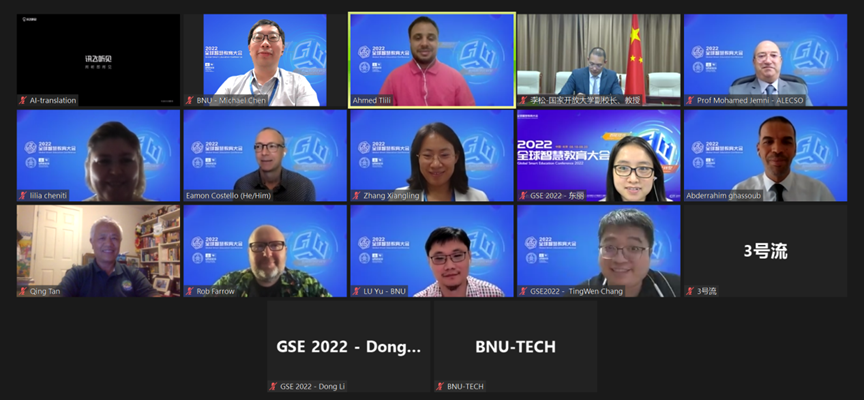
AI in open education
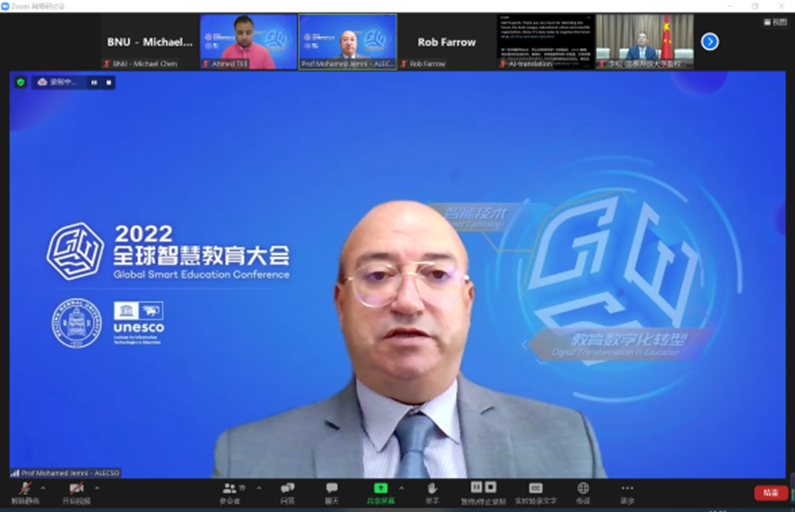
Dr. Mohamed Jemni, director of the ICT department of the Arab League Educational, Cultural and Scientific Organization (ALECSO)
Dr. Mohamed Jemni, director of the ICT department of the Arab League Educational, Cultural and Scientific Organization (ALECSO), pointed out that artificial intelligence provides new possibilities for addressing challenges such as equity, inclusiveness and intelligence in education. It is also fundamental for achieving SDG 4. He believed open education is of great significance to promoting education equity and narrowing the digital divide.

Professor LI Song, vice president of the Open University of China
Professor LI Song, vice president of the Open University of China, noted that the Open University of China would build a platform for lifelong education, online education, flexible education, and foreign cooperation. At present, the transformation and upgrading of Radio and TV University, as well as the high-quality development of the Open University, have entered a new stage. Artificial intelligence will help improve the quality of education and learners' learning experience and will play a positive role in promoting the development of open education.
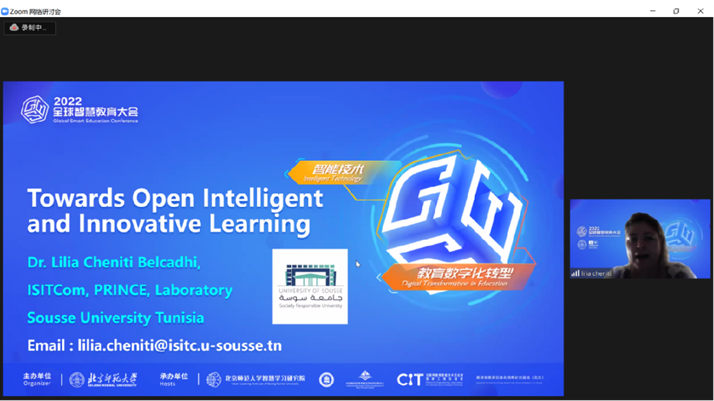
Professor Lilia Chniti from the University of Sousse in Tunisia
Professor Lilia Chniti from the University of Sousse in Tunisia delivered a speech on “Towards Open Intelligent and Innovative Learning”. She pointed out that technology can facilitate learners' learning and can be applied to educational evaluation. She proposed a "blended learning framework" that includes elements such as teaching and learning practice, resources (content), assessment, teacher capacity development, and inclusive facilities. She also elaborated on integrating artificial intelligence and education from three dimensions: resources, learner, and teacher.
Ethics of AI

Dr. LU Yu, an associate professor from Beijing Normal University
Dr. LU Yu, an associate professor from Beijing Normal University, discussed how artificial intelligence could promote education. He believed people need to understand the process and basis of the decision-making model of artificial intelligence. “Explainability” has become a key factor in deciding whether artificial intelligence can be widely applied. The role of explainable artificial intelligence in promoting education is a research question worthy of attention.
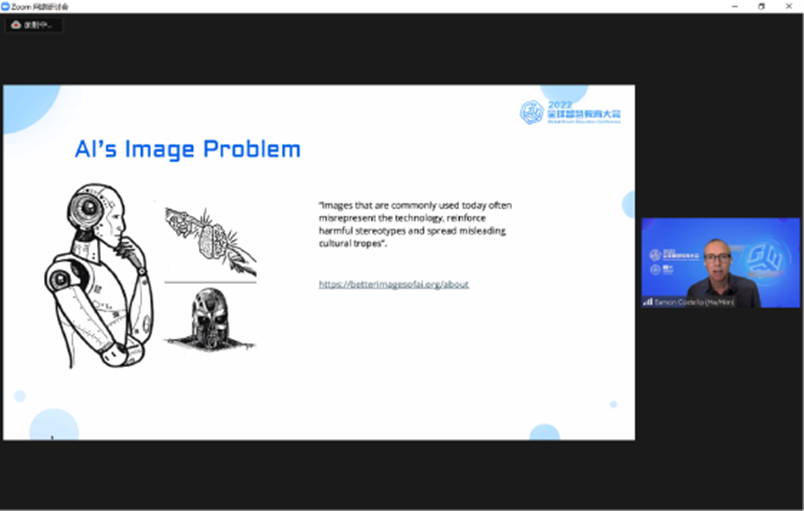
Dr. Eamon Costello from Dublin City University
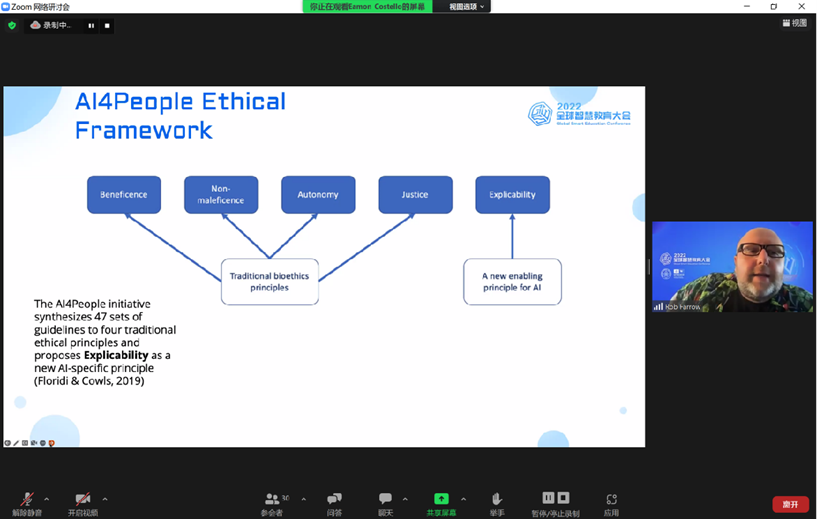
Dr. Rob Farrow from The Open University of Ireland
With the development of technology, the importance of the openness of education and the ethics of technology has become increasingly prominent. Dr. Eamon Costello from Dublin City University and Dr. Rob Farrow from The Open University of Ireland discussed issues on open educational resources (OER), open educational practice, and artificial intelligence ethics. They also proposed a framework for artificial intelligence ethics.
AI-driven assessment
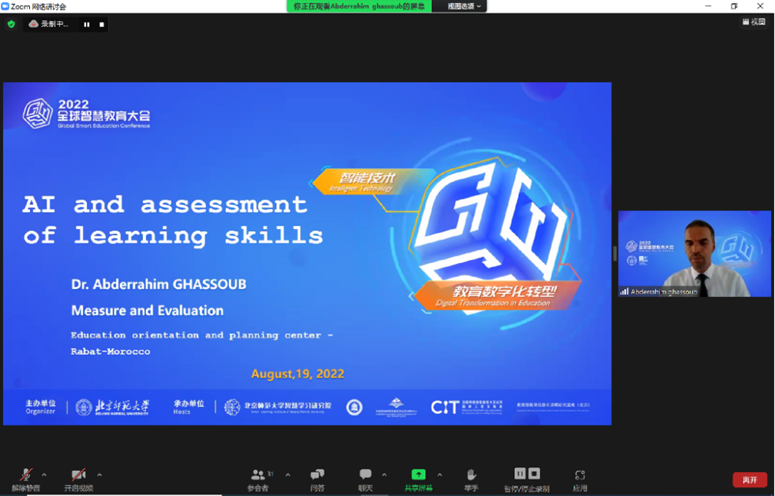
Dr. Abderrahim Ghassoub from an Education Orientation and Planning Center (called Rabat) in Morocco
Dr. Abderrahim Ghassoub from an Education Orientation and Planning Center (called Rabat) in Morocco talked about the difference between artificial intelligence and human intelligence. He emphasized the need to increase investment in research and development to improve the AI-driven assessment system and to strengthen teacher training for better application of artificial intelligence teaching tools.
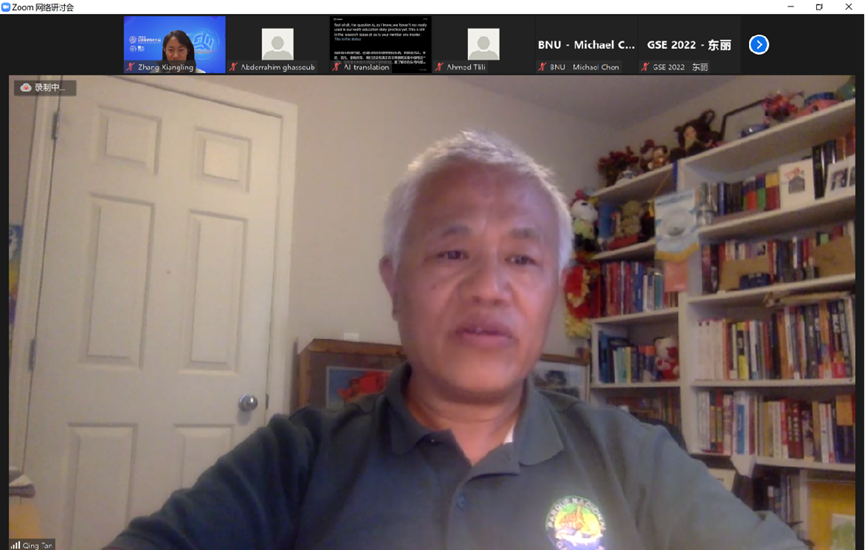
Dr. Qing Tan from Athabasca University
Dr. Qing Tan from Athabasca University gave a presentation on “Content Validation using Machine Learning - Open Learning Content Creation Platform”. He proposed a platform driven by machine learning technics for creating open learning content, using artificial intelligence algorithms to enhance the ability of content verification and learning behavior analysis, using blockchain technology to improve the credibility and traceability of creation, aiming to better support individualized learning among users.
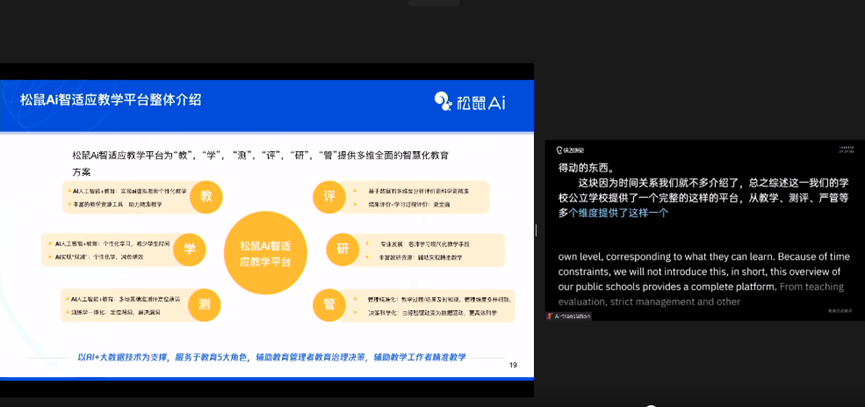
Mr FAN Xing, co-founder and CTO of Squarrel AI
Mr FAN Xing, co-founder and CTO of Squarrel AI, focused on how the application of artificial intelligence software and hardware in education can improve students' autonomous learning ability and truly help lessen the burden of both students and teachers for greater efficiency.

Dr. Marek Wosinski from Arizona State University
Dr. Marek Wosinski from Arizona State University pointed out that education can promote the knowledge, skills, values and actions required for sustainable world development, and technology plays an important role in it.

